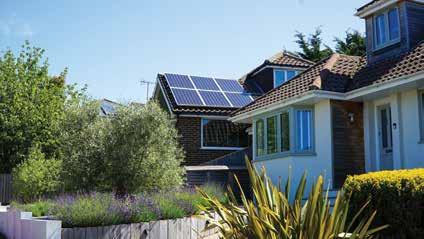
1 minute read
Solar Panels
Britain faced a tough winter, with rising fuel prices and energy costs. Homeowners are now looking for ways to save money and make their homes more energy efficient, in preparation for next winter. Many consumers are considering using ‘green’ or renewable energy, ecofriendly options that are better for the planet as well as your pocket. It’s estimated that around a million homes in the UK now have solar panels, one of the most popular home improvements of the past decade.
panel consists of cells which are made up of layers of a semi-conducting material, usually silicon, that converts light into electricity. Solar tiles and much electricity your household consumes and how much you are willing to spend on the installation.
Advertisement

Using solar energy will reduce your carbon footprint, something a lot of consumers are considering as we learn more about the effects of climate change. The electricity you generate from your solar panels can be directly used to power your home, and any surplus power can be sold back to the grid. This relatively small income could help offset the initial financial outlay of installation, but it won’t necessarily make you rich.
Solar panels often don’t require planning permission, as they are considered ‘permitted developments’. However, you should check with your local planning office in case any exceptions apply. Listed buildings, national parks and conservation areas have tight restrictions on alterations of properties, so check if any constraints apply.
In order to comply with regulations, you must register your solar PV system with your Distribution Network Operator (DNO), the company that supplies electricity to your home. Your installer will usually register the device for you, but you can research this on the UK Government website.






